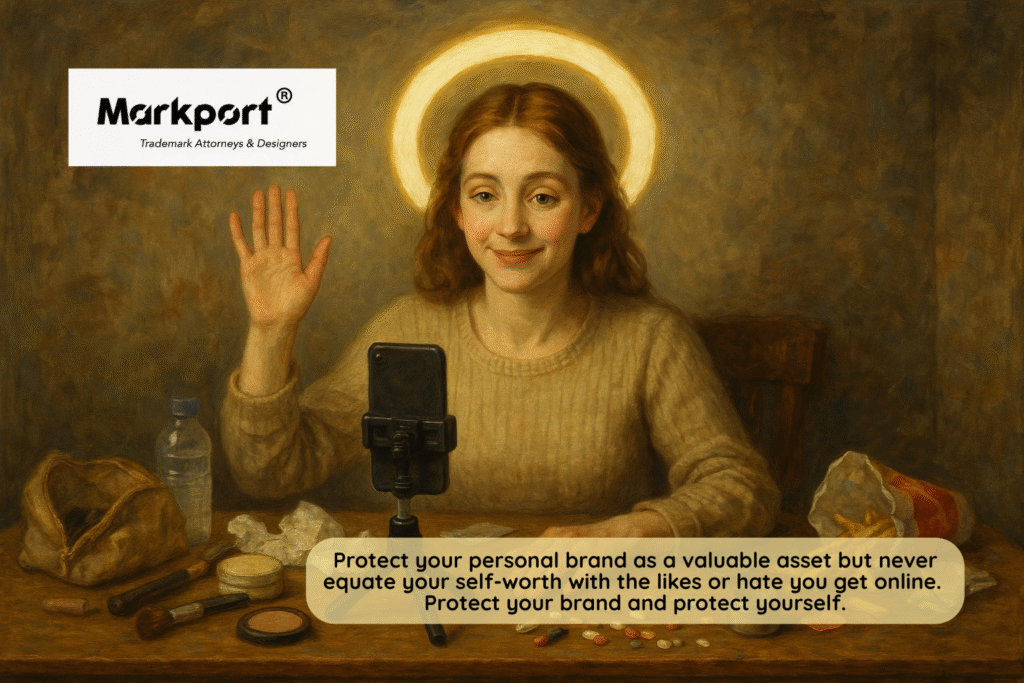How to Protect Your Personal Brand as an Influencer

In today’s digital world, influence is currency. Your name, image, and content are not just tools for engagement; they are valuable business assets. Al Jazeera’s documentary A New Form of Capitalism: The Influencer Culture reveals how creators now live in a marketplace where algorithms dictate visibility and attention equals survival.
Your personal brand is your competitive edge. But while social media makes it easy to grow an audience, it also makes you vulnerable. Copycats, impersonators, and even exploitative contracts can dilute or destroy the brand you worked so hard to build. Protecting it legally and strategically is no longer optional.
What Is Your Personal Brand as Intellectual Property?
Your personal brand includes more than your vibe or aesthetic. It covers:
- Name and handle
- Logo and tagline
- Visual identity and catchphrases
- Original content (photos, videos, scripts, designs)
Legally, these fall under intellectual property (IP), which includes trademark, copyright, and sometimes design rights. Knowing what to protect and how is your first step to security in the creator economy.
3 Legal Moves Every Influencer Should Make in 2025
1. Register Your Trademark Early
Your name or unique brand phrase is often the first thing imitators target. File for a trademark in key classes like:
- Class 35 for personal brand consulting or promotional services
- Class 41 for education, coaching, or influencer services
- Class 25 if you plan to sell merch
This gives you legal grounds to stop copycats and control how your name is used in business.
2. Understand Platform Terms of Service
Social media platforms allow creators to keep copyright ownership, but their terms often grant them broad licenses to distribute and monetize your content. Always review usage rights before signing brand deals, especially if you provide original scripts, graphics, or course materials.
3. Use Contracts for Brand Collaborations
Never rely on verbal agreements or casual emails for paid partnerships. A written contract protects your income and your intellectual property. At a minimum, include these key points:
- IP Ownership and Licensing: Decide who owns the content after posting. Ideally, you retain copyright and grant the brand a limited, non-exclusive license for specific use and duration. If the brand wants full ownership (work-for-hire), make sure the fee reflects that.
- Usage Limits: Specify exactly where and how your image and content can appear, for how long, and in which markets. For example, Instagram organic posts only for 3 months within Australia. If the brand wants global usage or paid ads, charge accordingly.
- Payment Terms: Detail the amount, currency, and payment schedule. Include due dates (e.g., within 14 days of invoice) and method of payment.
- Exclusivity Clauses: Brands may request that you avoid working with competitors for a certain period. Define the scope and charge extra for long exclusivity periods.
Tip: Get everything signed before you create or post any content. A clear contract sets expectations, prevents disputes, and ensures you are fairly compensated for your creative work.
Protect Your Mental Health
The documentary highlights a tough reality: many creators tie their self-worth to engagement metrics. When every like or comment feels like a measure of value, it creates a cycle of stress and burnout. Protecting your personal brand with IP is essential for business, but protecting your mental health is just as important. Likes and shares are not a reflection of your value. Build systems for your brand, but also set boundaries, take breaks, and remember that your well-being should never be sacrificed for the algorithm.
5 Quick Tips to Protect Your Brand and Yourself
- Trademark your name and visual identity now before your following grows further
- Secure domain names and social handles to prevent impersonation
- Read every contract for licensing clauses and perpetual usage rights
- Diversify your platforms (Patreon, Discord) to reduce reliance on one algorithm
- Separate self-worth from engagement stats; numbers are impressions, not your value
The Bottom Line
Your personal brand is both your business and your intellectual property. Treat it like an asset, not a byproduct of posting. Legal protection is your safety net against copycats, fake accounts, and exploitative deals. And while your brand deserves all the care in the world, remember this: likes, shares, and comments are just signals, not a measure of who you are. Protect your brand, but protect your mental health even more.
Interesting Links:
A New Form of Capitalism: The Influencer Culture. YouTube, uploaded by Al Jazeera English, 16 Aug. 2024, https://www.youtube.com/watch?v=vl3Kkjbvryk.
The Value of Trademarks for Authors, Speakers, and Creators. Markport, 25 Aug. 2025. https://markport.com.au/the-value-of-trademarks-for-authors-speakers-and-creators/
